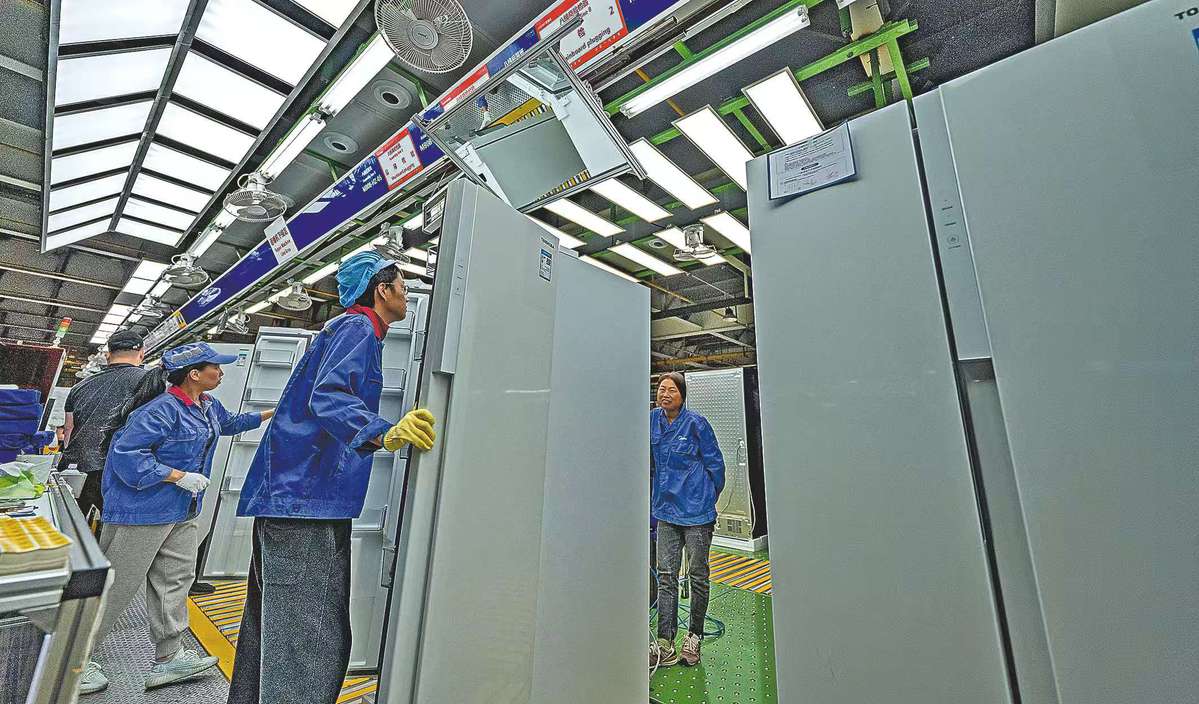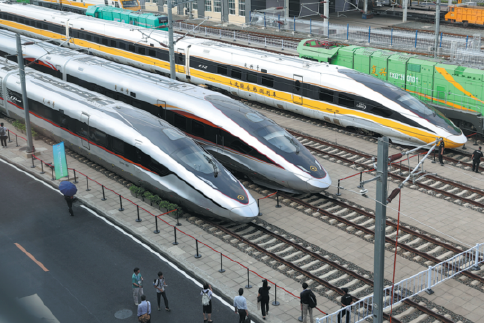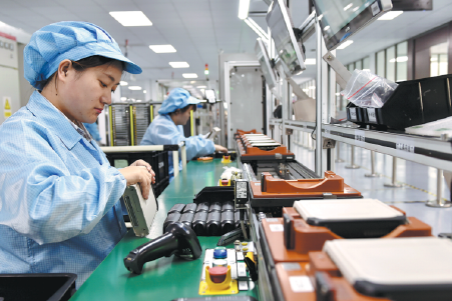Midea ramps up campus recruitment
Home appliance manufacturer pools more talent for innovation, marketing


Chinese home appliance manufacturer Midea Group will intensify efforts to offer more than 2,000 job positions through campus recruitment this year as part of its broader push to expand employment and scale up support for fresh graduates.
The jobs mainly cover eight categories, including research and development, information technology, manufacturing technology, domestic marketing, overseas marketing, finance and banking, supply chain and logistics and management, the company said.
By the end of 2024, it had more than 400 subsidiaries, 38 R&D centers and 44 major manufacturing bases across the globe, with nearly 200,000 employees and operations in more than 200 countries and regions. It has over 35,000 overseas employees and more than 23,000 R&D personnel.
Midea has continuously stepped up recruitment in fields like artificial intelligence, robotics, new energy and healthcare between January and April, with nearly 1,000 people recruited.
Fang Hongbo, chairman and president of Midea Group, highlighted the significance of enterprises' development in stabilizing employment. Currently, Midea has 8,000 core suppliers in China, with the total number of people engaged in the upstream and downstream industrial chains exceeding 1 million.
The company has established partnerships with many universities. Through various forms such as school-enterprise cooperation, internship, and campus recruitment, it provides students with practice opportunities and job positions.
Every year, it offers 2,000 to 3,000 internship positions and recruits over 2,000 fresh graduates, of whom more than 60 percent have obtained master's or doctoral degrees.
Midea also attaches great importance to the cultivation of graduates. It has cultivated a large number of outstanding students through a campus recruitment management system and let them give full play to their abilities. Currently, 50 percent of Midea's senior executives have joined the company through campus recruitment.
It has established a multilevel talent introduction mechanism covering positions from workers and technicians to engineers. In 2025, the number of campus recruitment positions in the company's quality and supply chain system will increase by 30 percent compared with 2024.
Midea will continue to fulfill its corporate responsibility of stabilizing employment and promoting development, with a particular focus on emerging industries such as intelligent manufacturing, digital transformation and new energy. It will further optimize job structures and enhance employment quality to contribute more to the high-quality development of the manufacturing industry.
China has rolled out a comprehensive policy package aimed at expanding employment and supporting business startups amid the country's efforts to foster sufficient and higher-quality employment.
The plan, issued by the leading group on employment work under the State Council in March, aims to boost job opportunities in key sectors and industries.
A key part of the plan is to leverage the role of the manufacturing sector in stabilizing and expanding employment. The country will tap into the employment potential of new quality productive forces in advanced manufacturing to create new jobs with the AI Plus initiative.
Pan Helin, a member of the Ministry of Industry and Information Technology's Expert Committee for Information and Communication Economy, said that manufacturing — as an important pillar of China's economic growth — has played a vital role in stabilizing employment and improving the employment structure.
"It is the main field for absorbing surplus rural labor force in the process of urbanization and serves as an important foundation for nurturing new employment growth points," Pan said, adding that the digital transformation and upgrading of manufacturing has created a large number of new positions covering intelligent manufacturing, data analysis and software development.
It is vital to promote jobs in the manufacturing industry and increase incomes of employees, especially frontline workers, as it will effectively help expand the middle-income group, narrow the income gap between urban and rural regions and achieve common prosperity, he added.
Experts also called for more detailed policy measures to step up support for micro, small and medium-sized manufacturing enterprises and optimize the business environment to facilitate their high-quality development.
fanfeifei@chinadaily.com.cn




































